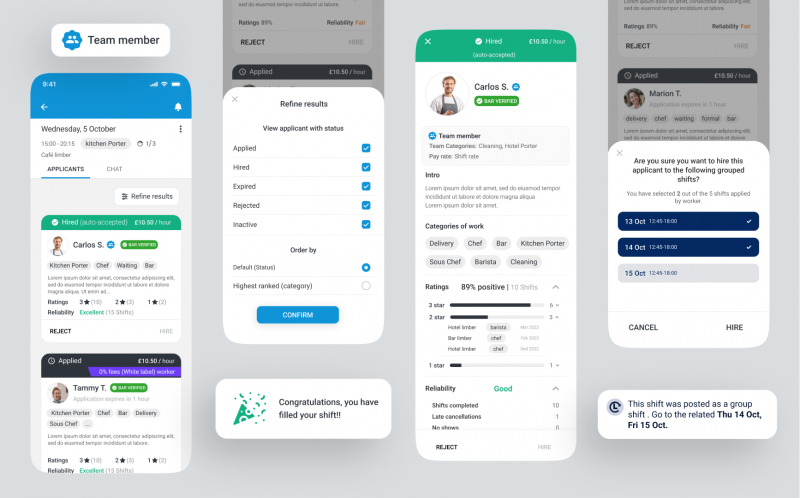The heartbeat of our company is the unapologetic questioning of the status quo in the workplace. Our app enables a growing generation of people who are no longer served by what you might call a traditional job. So, it’s natural (and important) that we apply the same rigour at limber HQ with the way we do things.
So, one sunny afternoon, I put the question to the team. It’s one that had been on my mind for a while – going back to my days as a tech lawyer. “What would you say if we moved to a 4 day working week (without any reduction in pay)”.
Many of us have read the reports from various trials of the 4 day week. The leading trial comes from a corporate in New Zealand who have reported a 20% uptick in productivity and increases in employee engagement since the policy was introduced. The movement has gathered enough pace that Labour’s shadow Chancellor (at the time of writing), John McDonnell, is reportedly looking into the 4 day week as a potential Labour policy, with some Unions giving it their backing.
The arguments for the 4 day week are principally that happy, healthy people are more productive and that if you give people an extra day off each week, they’re less likely to spend work time running errands or on their life admin. Staff recruitment and retention are ancillary benefits and cynics would say that it’s not bad for your brand generally to adopt pro-staff working practices. Finally, advocates would also say that there’s more indirect value in giving people extra time to pursue other things – the theory being that better rounded individuals make for more perceptive, balanced and resourceful employees. All of the above ignore the obvious potential societal benefits – mainly mental and physical wellbeing – which have far wider consequences beyond the workplace.
The main reason I asked the question was simply that the world has moved on. We’re all able to work faster than ever and deliver more work than we could even 5 years ago. The idea of set working hours blew up a long time ago, and I regularly ask my team to think or speak about work at unusual times of the day. Yet, the 5 day working week remains.
At limber, I want to encourage side hustles, which is why both our lead designer and head of operations now work 4 day weeks (although so far they’ve taken a pay cut to do so). I want us to be as efficient so that we can be and to live healthy, interesting and varied lives.
So, I posed the question, listened to some initial feedback, and then opened a slack channel to continue the debate and provide somewhere to throw evidence or reports. And then we took the weekend to think about it. I did some further research and returned the next week to gather further opinion. And that’s the bit that surprised me.
Georgina, who had recently gone to 4 days a week by choice said she didn’t want to force everyone else to do the same. She was happy with her decision and the corresponding pay cut. Mark told me he would get much less work done in 4 days and would work the 5th day anyway. Rory and Thom said the same saying that they preferred to take their flexibility throughout the week as the natural ebbs and flows allowed. Kiwani said she really enjoyed her extra day off and felt that if she was going to concentrate on her illustration, it wasn’t fair if others were inevitably working.
So, what did I learn from this? Well, flexibility is a very personal thing. We sometimes over state it: “All people want flexibility”. “Everyone wants variety”. We believe those to be trends, but statements like that are too blunt an instrument – not everyone wants those things. And, not everyone who wants those things wants it in the same way. So, in truth, there is no one size fits all approach. We cannot legislate for this (as Unions might want), we have to sympathetically consider everyone’s position. For those who need structure to push through and be effective, but then want to be left alone, we must continue to respect the 9-5pm working week. If we force those people into a new mould, we solve one problem, but create another.
If your best moments are at strange times of the day, we must work harder to understand that, and relax the rules at other times.
As ever, the key for me remains collaboration – we still need to be able to work together effectively, which means an element of compromise from everyone.
As a final note, I was humbled and impressed with my team’s integrity. They were offered a way to work less for the same pay and they turned it down – for the good of the team and what we’re trying to achieve. I need to make sure they’re rewarded with their own way of working and space to do things the way that works for them.


Chris Sanderson
Chris started limber in late 2016 with a big dream to make it easier to work and hire in hospitality. Chris is an ex pub manager and knew too well the challenges involved on both sides of the equation. He’s also a former technology lawyer and owner of the office dog, Jasper.




